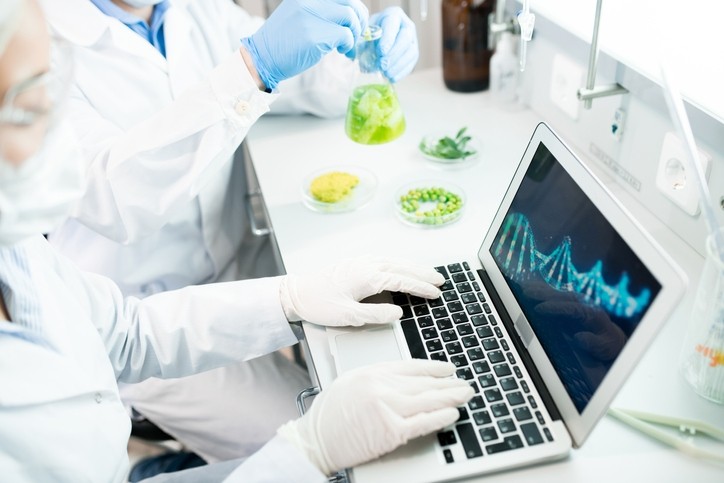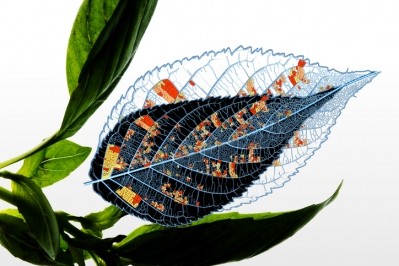AIC: Gene editing could bring multiple environmental and nutritional benefits but trade impact of policy divergence needs to be considered

“We should by no means consider GE and GMO applications as the only answer to challenges in our climate and food systems, however we cannot, and should not, overlook the possible opportunities that could be achieved across a variety of sectors. With pressures across a variety of systems, we must be prepared to consider the risks of failure to act upon these technologies, as opposed to continuing to adopt an over-precautionary approach that serves to stifle innovation.”
It made those comments this week as it responded to the UK Department for Environment, Food and Rural Affairs' consultation on the regulation of genetic technologies in England, launched in January this year.
The Agriculture Industries Confederation (AIC) said it is of the position that gene editing (GE) works with the genetic potential of an organism, and changes could therefore have happened naturally.
"Through the use of gene editing, many of the changes that can take a number of years to achieve through conventional methods can be achieved more efficiently and new traits with their associated advantages (such as pest and disease control, improvement of input efficiency and human health and nutritional benefits) be brought to the market more quickly. By comparison, GMOs involve insertion of ‘foreign’ DNA to bring in traits from other species, or significant changes to the organism that could not have occurred through conventional breeding. Gene editing is therefore clearly different in our opinion."
That consultation focused on a future government approach to gene-editing in England, and the regulation of gene edited (GE) organisms possessing genetic changes that could have been introduced by traditional breeding. It also asked for views on the wider regulatory framework governing genetically modified organisms (GMOs).
Themes for future innovation in GE and GMOs:
In its response to the questions in that review, the AIC identified three broad themes for future innovation in GE and GMOs:
Environmental outcomes
It said it believes that gene editing will allow researchers and AIC members to explore techniques or applications in plant health, livestock feed and seed breeding that can minimize emissions and disease spread, whilst allowing for new varieties or breeds that can adapt to the real challenges of climate change.
Meeting the needs of consumer and animal nutrition
It is evident that dietary requirements and demands are changing in the UK and around the world, said the UK ag and feed trade group.
“By harnessing innovation, we have an opportunity to address nutritional challenges in crops and livestock, as well as eliminating allergens and helping to reduce food waste.“
Diversity
It also noted a growing concern across the UK agricultural sector that the nation’s genetic diversity in crops and livestock is diminishing.
“We now have an opportunity to fundamentally readdress the possible availability of crop varieties and types available to farmers, which can help the UK food and feed production whilst catering for the wide variety of products that UK consumers are demanding across the food chain. Having the means by which to offer farmers more choice in their cropping options would be of clear benefit.”
And the AIC believes that GE plant breeding techniques provide “significant scope” for innovation in terms of new sources of feed for livestock sectors.
“It is well documented that the UK relies upon different imported feeds across a range of livestock sectors, and any innovation that can help reduce this reliance would be advantageous to both domestic livestock and cereal farmers. There have been a number of smaller trials into certain crops for use in pig and poultry feed for example, however the possibility of using GE techniques could help speed up this process.”
Transparency
AIC said it supports the idea of all new technologies being properly evaluated from a scientific point of view and the marketplace being allowed to deliver its subsequent view on their suitability.
Education and communication will be key to realizing the opportunity as well as transparency, it added.
The trade body said it recognized said the supply chain and consumers may expect a degree of transparency where GE has been used in production.
“AIC would welcome dialogue on how any transparency requirements could be achieved in a practical way, through existing frameworks and production requirements.”
Anti-deregulation campaign
Groups like Beyond GM and Slow Food UK are campaigning against any deregulation of genetic engineering techniques, which they say must be considered and regulated, as the European Court of Justice ruled in 2018, in the same way as other GMOs because to date there is "no evidence that these new GMOs do not present a risk to agriculture, the environment and biodiversity."
Impact on trade
Despite all the benefits seen for such new technologies, the AIC acknowledged, in its response to the consultation, that any changes in policy on GE in England could upend trade relations with the EU, and with Northern Ireland.
“AIC represents companies in the agrisupply sector and many export cereals, pulses, oilseeds, animal feed and seed to the EU and globally. If the EU were to continue classifying what it views as GE products as GM, that would be a significant barrier to trade, including from GB into NI. Therefore the outcome of the European Commission study on the legal status of GE, due in April, is of great interest.
“Under the Trade and Co-operation Agreement between the UK and the EU, the chapters on level playing field and the environment could be brought under greater scrutiny with regard to a deviation in policy position on gene editing or genetic modification. The government must consider how such a regulatory deviation would be considered, with any prospect for a challenge from the EU. “








